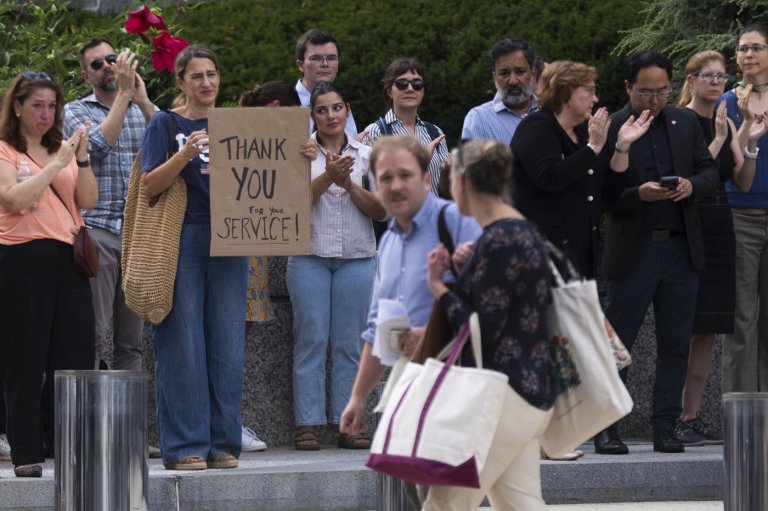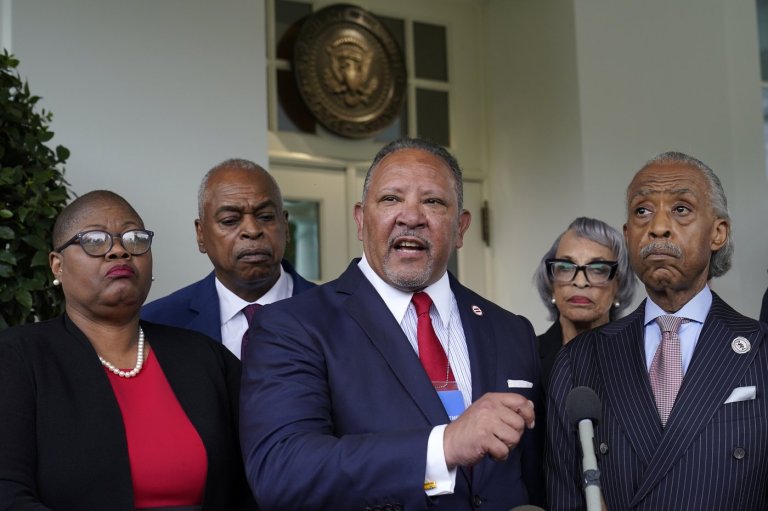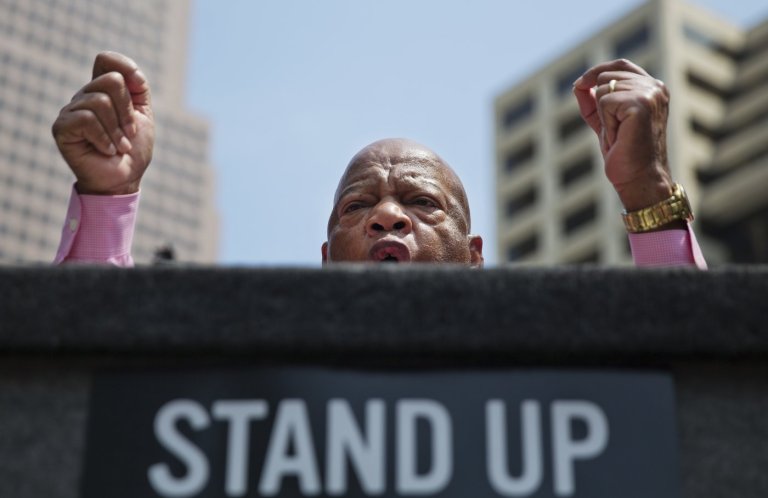First 2016 Democratic debate: Clinton goes toe-to-toe with upstart rival Sanders
WASHINGTON – Barely conceivable a few months ago, Bernie Sanders was accorded the treatment usually reserved for front-runners as candidates held the first 2016 Democratic presidential debate Tuesday.
Moderator questions were pointed. Rivals pressed him.
The self-described socialist senator from Vermont certainly escaped the dreaded fate of politicians everywhere: irrelevance, as illustrated by a lesser-known rival who repeatedly protested to the moderator that he was being ignored Tuesday.
That also meant more scrutiny. The moderator asked: Are you a capitalist? The answer, from the candidate now beating Clinton in the polls in New Hampshire and challenging her in Iowa, sounded a lot like a no.
”Do I consider myself part of the casino-capitalist process by which so few have so much, and so many have so little, by which Wall Street greed and recklessness wrecked this economy?” Sanders replied.
”No, I don’t. I believe in a society where all people do well — not just a handful of billionaires.”
Asked how a socialist could ever hope to win a U.S. election, Sanders replied that he’d start by explaining what socialism is: the desire to provide universal health coverage and parental leave like other developed countries, and to smooth out the gap between haves and have-nots like Sweden and Denmark.
Clinton defended capitalism. She called it an unprecedented driver of middle-class wealth. Occasionally in U.S. history, however, she said capitalism needed to be saved from itself with political changes.
She cited as one example an employee-company profit sharing model she’s promoted, similar to stock options. She also defended Wall Street regulatory reform and parental leave.
The debate began with moderator Anderson Cooper challenging Clinton on her biggest flip-flops.
He asked whether she’d say anything to get elected. In the last few weeks alone, facing pressure from her left, Clinton has swerved in that direction on two major issues — against the Keystone XL pipeline, which she had previously seemed to favour, and against the Trans-Pacific Partnership trade deal which she’d actually worked on.
”Everybody on this stage has changed a position or two. We’ve been around a cumulative, quite some period of time,” Clinton said later in the debate.
”If you are learning, you are going to change your position. I never took a position on Keystone until I took a position on Keystone,” she said, noting that she’d never explicitly endorsed the Canada-to-Texas pipeline.
Asked whether she’s a moderate or progressive, Clinton described herself as the latter — with a realpolitikal asterisk: ”I’m a progressive. But I’m a progressive who likes to get things done. And I know how to find common ground.”
Clinton then attempted to turn the tables on Sanders on a rare issue where she’s actually to his left: gun control.
Sanders represents a largely rural state and has voted frequently — but not consistently — for gun-control measures. For example, he’s defended an exemption from lawsuits for gun-sellers whose weapons are used in crimes.
Clinton said her rival isn’t tough enough on that issue. ”Senator Sanders did vote five times against the Brady Bill,” she said, referring to the last significant gun-control law passed in the U.S. Congress, in 1993. On the lawsuit-protection, she added: ”It wasn’t that complicated to me.”
Sanders challenged Clinton’s vote for the Iraq War — a conflict he called the worst foreign-policy blunder in U.S. history: ”I heard the same evidence (as Clinton),” and still opposed the war, Sanders said. He insisted he wasn’t a total pacifist and did vote for military intervention in other cases, like Afghanistan in 2001 and Kosovo in 1998.
Clinton didn’t do much to defend her Iraq war vote as a senator.
She simply said she and President Barack Obama debated the issue 25 times in debates during the 2008 primary — and he trusted her judgment enough to make her secretary of state.
The exchanges were overwhelmingly civil.
Sanders even got a handshake from Clinton when, at one point, he rose to her defence.
With all the problems in the country, like an emerging oligarchy threatening the middle class, Sanders said he was fed up hearing about investigations into the secretive email system she used as secretary of state.
”The American people are sick and tired of hearing about your damn emails,” he said, drawing her handshake. ”Enough of the emails — let’s talk about the real issues facing America.”
Sanders certainly took up more space Tuesday than former governors Martin O’Malley and Lincoln Chafee and ex-senator Jim Webb — also-rans in the race who were also on stage.
Polling at less than one per cent, Webb repeatedly complained the moderators weren’t letting him speak.
Join the Conversation!
Want to share your thoughts, add context, or connect with others in your community? Create a free account to comment on stories, ask questions, and join meaningful discussions on our new site.













Leave a Reply
You must be logged in to post a comment.